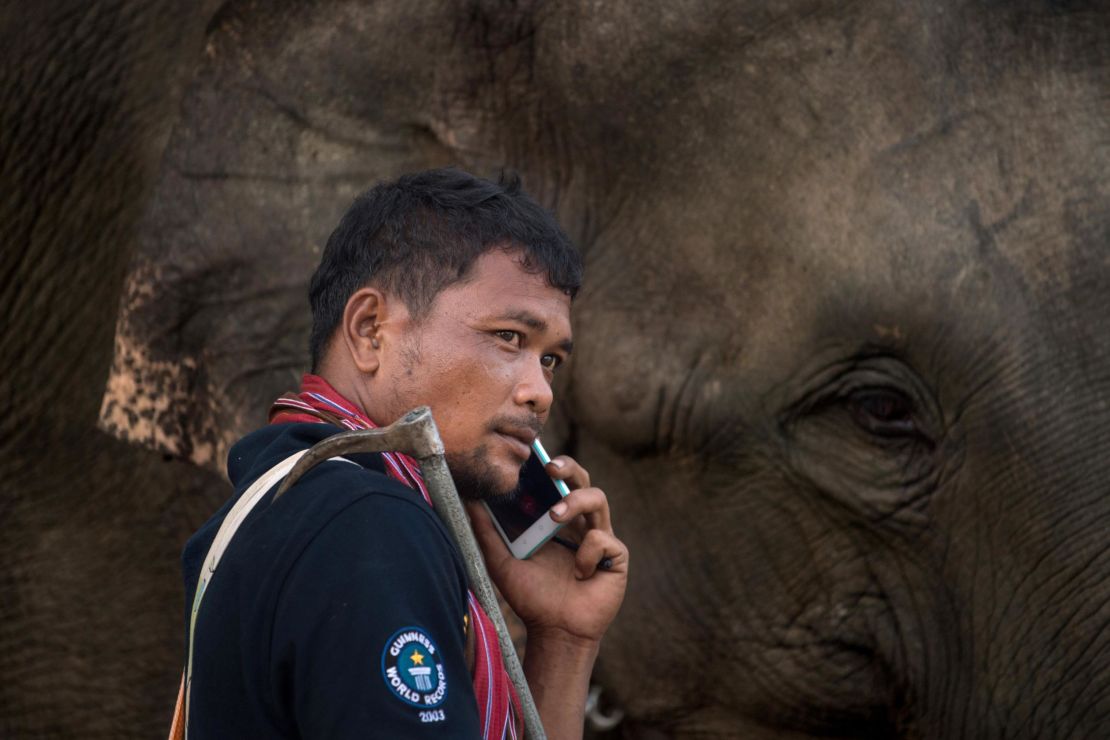A group of zoos voted this summer to outlaw a device used to control elephants, a move welcomed by animal rights groups.
The Association of Zoos and Aquariums said it voted to phase out the bullhook, a type of baton used to control elephants in captivity and a lightning rod for criticism from animal rights advocates.
Association board members voted in July to ban elephant keepers from using the bullhooks except in emergencies and non-routine medical procedures, but the ban will take more than a year to fully implement.
The board hopes to abolish the tool entirely by 2023, spokesman Rob Vernon said.
The bullhook, a rod fitted with a metal-tipped hook, primarily benefits human trainers, who use it to keep the several-ton elephants at a safe distance. But the decision makes clear that their use is “not acceptable” in modern zoos, which rely on the association for accreditation, he said.

“Although it is a tool that professional animal care staff can use compassionately and appropriately, our experience now shows that it is unnecessary, and its historical association with abuse of elephants leads us to conclude that it should not be in any AZA accredited facility,” Vernon said in a statement.
Using the bullhook to guide or train an elephant is allowed under limited circumstances or with supervisor approval, he said.
Animal advocates have called for bans for years
Animal rights groups have long protested its use, citing injury to the elephants. Vernon said most accredited zoos have already dropped them from their elephant care regimens.
But for circuses and roadside animal attractions that don’t operate under Association of Zoos and Aquariums accreditation, the practice – and potential for abuse – remains, according to Nicole Paquette, chief programs and policy officer at the Humane Society of the United States.
“A bullhook is an outdated, circus-style training tool that resembles a fireplace poker and is used to inflict pain and punishment on elephants,” she said in a statement this week.
Paquette said she considered the decision a win for elephant welfare but called on the association to impose broader standards for the safety of elephants in captivity, including banning the import of elephants captured in the wild, expanding the required size for their enclosures and allowing them to live only in zoos where the climate lets them stay outside year-round.
California, Rhode Island and 15 local governments in the United States have banned their use from facilities, according to the Humane Society.
Circuses in particular have caught the majority of animal abuse claims. Ringling Bros. stopped including trained elephants in performances in 2016 after years of protests, a lawsuit alleging elephant mistreatment (which was dismissed) and a fine from the US Department of Agriculture for multiple alleged violations of the Animal Welfare Act.
When the famed circus announced in 2017 that it would close, it credited the devastating drop in ticket sales to the lack of elephants.
